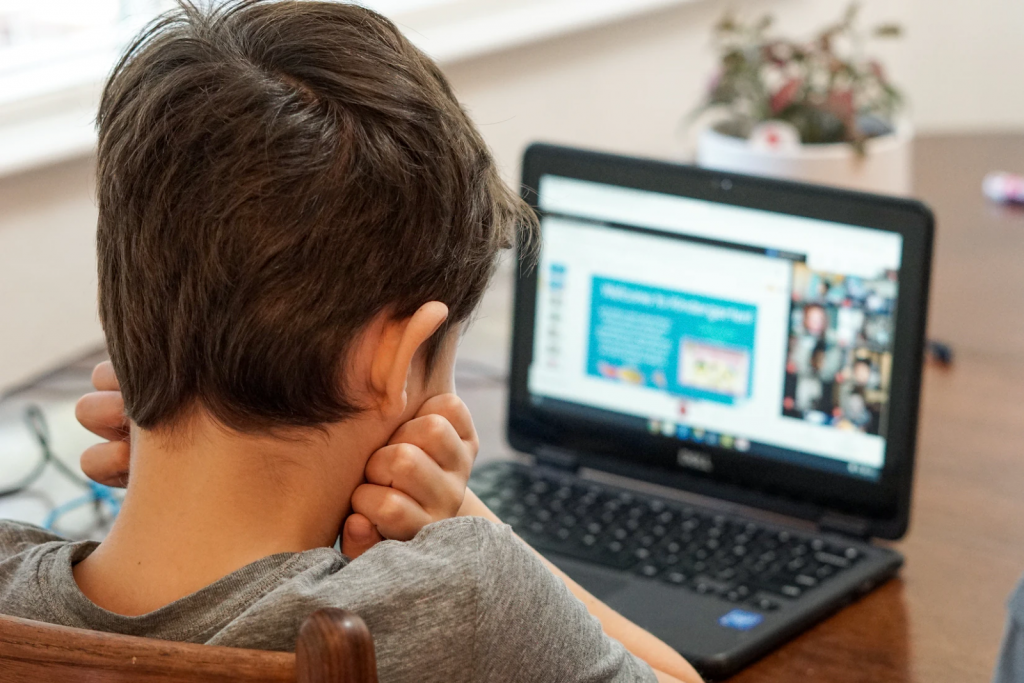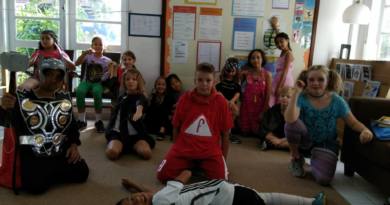Primary eNews – Aug 13, 2021
A Provocation to kickstart our thinking in Grade 4
Grade 4 have taken their first steps into our first unit of inquiry with a collaborative visible thinking routine. See Think Wonder. The aim of the task was to generate discussion, begin building a unit vocabulary, and prepare us for our pre-assessment task.
Visible thinking routines are fabulous tools to help students access and structure their thinking. The See Think Wonder routine encourages curiosity and inquiry through observation.
Students worked in pairs on a collaborative document and were each given a picture prompt as a provocation. They were asked to list the components of the image they can SEE: the actual. Then to suggest what the image makes them THINK about: personal and experiential connections. Finally, students WONDER: ask questions to think deeper.
Grade 4 was able to share their thinking routine in a whole class ZOOM discussion, which highlighted our different perspectives. Yay! Perspectives, opinions, and advocacy are concepts we will be exploring during our unit.
Students worked independently to reflect on the central idea: children worldwide encounter challenges, risks and opportunities, what we already know and what we would like to find out more about.
Some things we know:
- Some children around the world don’t have homes and parents and I think this is really sad
- I think children have opportunities to be adopted and find a new home
- Children can be poor
- Some children maybe don’t go to school
- Children can get lost
- Some children in some places have to work and don’t go to school
- Some children don’t have clean or hygienic water to drink
- Children who can go to school can’t because of COVID19
- Some children are hungry because they don’t have enough food or money
- School gives us the opportunity to learn things that help us like writing
What I would like to know more about:
- What other challenges do children around the world encounter?
- How do children know about opportunities?
- Why are people, families and children poor?
- If children are working, do they do that every day?
- How many children around the world don’t have clean water?
- Why do some children have to work and what do they get for that?
These musings are the building blocks for planning our inquiry.
Counseling Corner

Hi all,
Thanks for reading the counseling post this week.
We are back in school and we are not!
We are so happy to have our students back in the online lessons, but we understand it is challenging for many of you to start this school year in distance learning.
Here are a few tips to make distance learning happen for you.
Treat It Like the Real Thing
It’s easy to forget that you are in school, when being in the comforts of your own house. Additionally, it’s easy to fall into bad habits. To avoid this, treat it like it’s the real thing. Get up at the time you would if you’re going into a real class, take a shower, get dressed, have your breakfast, then “go to class”. It may seem strange to think about it this way, since you’re just at home, but it will help motivate you.
Make the day’s schedule together
Older children can help by either writing or drawing pictures. For younger children, you can talk about the tasks as you write or draw plans on a dry erase board or piece of paper. Be creative and allow input from your child when appropriate, especially during “free times.” These small steps help give children a sense of control and ownership over their days.
Make time for movement
Your child may be spending more time indoors and in front of a computer screen than they would used to in the summer break However, their bodies still need action to regulate their energy levels, give their eyes a break, and build strength. There are numerous benefits to physical activity, so be sure to schedule “wiggles” throughout the day. These breaks can be as simple as a short dance party and a walk around the block or longer like a game of soccer or a family bike ride.
Choose a productive study space

Your surroundings are a great element to think about. In the right space, you’ll be able to focus more and be productive. If possible, dedicate a space that’s preferable not in your bedroom, as your bed can be quite a distraction. Choose also a place in your house where there will be less noise or distractions during your classes, but also comfortable enough for you. If there are other sounds, like sisters and brothers who are also in their classes, choose to wear headphones.
Be Open-Minded

Having an open mind is key in maximizing distance learning. Learning is different from your traditional classroom type of education and it is good to embrace this difference and take it as an opportunity in learning more new things. Participate in classes, ask questions, reach out to your teachers and classmates, and don’t let procrastination get the best of you.
Another important thing to remember is that we are all going through a difficult transition, so keep your expectations reasonable, give yourself and your child lots of grace, and take it one day at a time. It may be a bumpy road at times, but even small modifications can help you manage your day.





